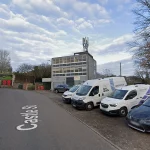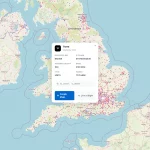Sponsored Links
UPDATE Ofcom - Average UK Broadband ISP Speeds Increase to 4.1Mbps
Posted: 28th Jul, 2009 By: MarkJ
Ofcom has today published the results of its latest research into fixed-line broadband speeds in the UK. The study, which was conducted with technical partner Samknows and market research agency GfK, reveals that the average broadband speed in April was 4.1Mbps, which is up from 3.6Mbps reported during January this year (original news).
Over 60 million separate service performance tests were carried out in over 1600 homes between November 2008 and April 2009 to reach the results, which also revealed that the average ‘up to’ headline connection speed (advertised rate) stood at 7.1Mbps.

The majority of consumers were happy with the speeds they received, yet 26% expressed frustration that the broadband performance experience was not what they expected when they first signed up to the service. To that end Ofcom has released a new consumer advice video on practical tips to improve home broadband speeds.
The limited number of homes involved meant that only nine of the largest ISPs by market share could be included. As a result many smaller and more reputable UK broadband providers have been tragically overlooked, which seems to be an understandable but all too common occurrence.
The actual speeds received varied widely. Fewer than one in ten (9%) of the sample on 8Mbps headline packages received actual average speeds of over 6Mbps and around one in five (19%) received, on average, less than 2Mbps. Consumers with all ISPs experienced a slowdown in actual speeds during peak evening hours (8-10pm), with performance dropping by 20% compared to a 24-hour average.

The main reasons for dissatisfaction tend to focus on speed, reliability and value. Those living in rural areas are significantly more likely to mention speed as the main reason for their dissatisfaction.

Those living in urban areas also continued to receive significantly faster speeds than residents of rural locations. The average speed delivered to urban consumers was 4.6Mbps, compared to an average of 3.3Mbps delivered to rural consumers. Mind you, some rural residents would be lucky to even get a connection, let alone a steady 512Kbps (0.5Mbps) or faster.
The study itself essentially reinforces much of what we already know, albeit with significantly greater accuracy than your typical anecdotal website based speed tests. We would expect speeds to continue upwards, thanks to the growing adoption of up to 24Mbps ADSL2+ services and their increased use in 8Mbps products. Download Full Report (Adobe Reader .PDF Format).
UPDATE - 29th July @ 07:44am
Here are some industry reactions and comments to the report.
Over 60 million separate service performance tests were carried out in over 1600 homes between November 2008 and April 2009 to reach the results, which also revealed that the average ‘up to’ headline connection speed (advertised rate) stood at 7.1Mbps.

The majority of consumers were happy with the speeds they received, yet 26% expressed frustration that the broadband performance experience was not what they expected when they first signed up to the service. To that end Ofcom has released a new consumer advice video on practical tips to improve home broadband speeds.
The limited number of homes involved meant that only nine of the largest ISPs by market share could be included. As a result many smaller and more reputable UK broadband providers have been tragically overlooked, which seems to be an understandable but all too common occurrence.
The table below shows the average speeds received by the sample (including margin of error) for each ISP.
ISP and package - Average speed
AOL (‘up to’ 8Mbit/s) - 3.3 to 3.9Mbit/s
BT (‘up to’ 8Mbit/s) - 3.8 to 4.2Mbit/s
O2 (‘up to’ 8Mbit/s)* - 4.1 to 5.1Mbit/s
Orange (‘up to’ 8Mbit/s) - 3.8 to 4.5Mbit/s
Plusnet (‘up to’ 8Mbit/s)* - 3.8 to 4.9Mbit/s
Sky (‘up to’ 8Mbit/s) - 4.0 to 4.7Mbit/s
Talk Talk (‘up to’ 8Mbit/s) - 3.8 to 4.6Mbit/s
Tiscali (‘up to’ 8Mbit/s) - 3.2 to 3.7Mbit/s
Virgin Media(‘up to’ 10Mbit/s) - 8.1 to 8.7Mbit/s
Source: SamKnows measurement data for all panel members with ‘up to’ 8Mbit/s or ‘up to’ 10Mbit/s connections in April 2009
*Data for O2 and PlusNet should be treated with caution as sampled sizes were smaller than for other ISPs
ISP and package - Average speed
AOL (‘up to’ 8Mbit/s) - 3.3 to 3.9Mbit/s
BT (‘up to’ 8Mbit/s) - 3.8 to 4.2Mbit/s
O2 (‘up to’ 8Mbit/s)* - 4.1 to 5.1Mbit/s
Orange (‘up to’ 8Mbit/s) - 3.8 to 4.5Mbit/s
Plusnet (‘up to’ 8Mbit/s)* - 3.8 to 4.9Mbit/s
Sky (‘up to’ 8Mbit/s) - 4.0 to 4.7Mbit/s
Talk Talk (‘up to’ 8Mbit/s) - 3.8 to 4.6Mbit/s
Tiscali (‘up to’ 8Mbit/s) - 3.2 to 3.7Mbit/s
Virgin Media(‘up to’ 10Mbit/s) - 8.1 to 8.7Mbit/s
Source: SamKnows measurement data for all panel members with ‘up to’ 8Mbit/s or ‘up to’ 10Mbit/s connections in April 2009
*Data for O2 and PlusNet should be treated with caution as sampled sizes were smaller than for other ISPs
The actual speeds received varied widely. Fewer than one in ten (9%) of the sample on 8Mbps headline packages received actual average speeds of over 6Mbps and around one in five (19%) received, on average, less than 2Mbps. Consumers with all ISPs experienced a slowdown in actual speeds during peak evening hours (8-10pm), with performance dropping by 20% compared to a 24-hour average.

The main reasons for dissatisfaction tend to focus on speed, reliability and value. Those living in rural areas are significantly more likely to mention speed as the main reason for their dissatisfaction.

Those living in urban areas also continued to receive significantly faster speeds than residents of rural locations. The average speed delivered to urban consumers was 4.6Mbps, compared to an average of 3.3Mbps delivered to rural consumers. Mind you, some rural residents would be lucky to even get a connection, let alone a steady 512Kbps (0.5Mbps) or faster.
Audrey Gallacher, Head of Customer Experience at Consumer Focus, said:
‘OFCOM’s research should stop companies exaggerating their claims about broadband speeds. It is really welcome that consumers will, for the first time, have a way of comparing internet providers. Consumers have long suspected that they don’t get the speeds they’re led to expect, and are paying over the odds for their broadband services. With this clear information and Ofcom’s advice, people will be able to make better choices.’
‘OFCOM’s research should stop companies exaggerating their claims about broadband speeds. It is really welcome that consumers will, for the first time, have a way of comparing internet providers. Consumers have long suspected that they don’t get the speeds they’re led to expect, and are paying over the odds for their broadband services. With this clear information and Ofcom’s advice, people will be able to make better choices.’
The study itself essentially reinforces much of what we already know, albeit with significantly greater accuracy than your typical anecdotal website based speed tests. We would expect speeds to continue upwards, thanks to the growing adoption of up to 24Mbps ADSL2+ services and their increased use in 8Mbps products. Download Full Report (Adobe Reader .PDF Format).
UPDATE - 29th July @ 07:44am
Here are some industry reactions and comments to the report.
Elfed Thomas, CEO of fibre optic network specialist i3 Group , said:
"The Government has called for universal Internet access of 2mbps by 2012 yet many people believe they are already getting far faster connections than that after purchasing packages from service providers promising up to 8mbps. Today's announcement, however, shows that in practice customers are often only accessing slower speeds due to the restrictions inherent in the very networks they are using. This should not only evoke concerns for today's users but is also a huge wake up call over the future capacity of the system.
Where copper wire was once the forefront of new technology, it is now a restrictive method for transmitting data when compared to glass fibre optic cables, which are capable of carrying incredible amounts of information at the speed of light.
Although many service providers offer fibre optic broadband, most are only installing Fibre to the Cabinet (FTTC), otherwise known as the telephone exchange, before making use of the traditional copper connection in order to reach the home. This ‘last mile’ problem is where the bottleneck occurs and leads to homes further from the exchange suffering slower speeds than those closer to it. Greater numbers of people utilising the same connection can also have a knock on effect to Internet speed.
i3 Group is the only fibre optic network specialist which is deploying true Fibre to the Home (FTTH) as part of the Fibrecity project. Fibre infrastructures are currently being rolled out in the UK and Ireland as well as internationally including Australia, South Africa, Greece and the Middle East. Our fibre optic cable is installed directly into the home and at no point connects to the traditional slow copper wires.
Not only does true FTTH provide up to 100mbps download speeds but it also enables an upload speed of up to 100mbps, unlike current ISPs with which upload is often a fraction of the download capacity."
"The Government has called for universal Internet access of 2mbps by 2012 yet many people believe they are already getting far faster connections than that after purchasing packages from service providers promising up to 8mbps. Today's announcement, however, shows that in practice customers are often only accessing slower speeds due to the restrictions inherent in the very networks they are using. This should not only evoke concerns for today's users but is also a huge wake up call over the future capacity of the system.
Where copper wire was once the forefront of new technology, it is now a restrictive method for transmitting data when compared to glass fibre optic cables, which are capable of carrying incredible amounts of information at the speed of light.
Although many service providers offer fibre optic broadband, most are only installing Fibre to the Cabinet (FTTC), otherwise known as the telephone exchange, before making use of the traditional copper connection in order to reach the home. This ‘last mile’ problem is where the bottleneck occurs and leads to homes further from the exchange suffering slower speeds than those closer to it. Greater numbers of people utilising the same connection can also have a knock on effect to Internet speed.
i3 Group is the only fibre optic network specialist which is deploying true Fibre to the Home (FTTH) as part of the Fibrecity project. Fibre infrastructures are currently being rolled out in the UK and Ireland as well as internationally including Australia, South Africa, Greece and the Middle East. Our fibre optic cable is installed directly into the home and at no point connects to the traditional slow copper wires.
Not only does true FTTH provide up to 100mbps download speeds but it also enables an upload speed of up to 100mbps, unlike current ISPs with which upload is often a fraction of the download capacity."
Hendriks, product marketing manager for mobile broadband, Acision comments:
“There is a big difference in the theoretical maximum mobile broadband speed and the reality experience by consumers. Maximum speed is dependent on many things; like the users distance from the base station, whether they are on the move, the number of concurrent users and bandwidth usage for the specific base station.
Flat fee usage plans have driven mobile broadband’s success to date, but operators risk becoming a victim of their own success. Before they are put under the same scrutiny as fixed-line providers, mobile operators need to guarantee quality of service for specific user groups, by differentiating service offerings against tiered pricing options, matched to consumer usage preference and needs.”
“There is a big difference in the theoretical maximum mobile broadband speed and the reality experience by consumers. Maximum speed is dependent on many things; like the users distance from the base station, whether they are on the move, the number of concurrent users and bandwidth usage for the specific base station.
Flat fee usage plans have driven mobile broadband’s success to date, but operators risk becoming a victim of their own success. Before they are put under the same scrutiny as fixed-line providers, mobile operators need to guarantee quality of service for specific user groups, by differentiating service offerings against tiered pricing options, matched to consumer usage preference and needs.”
Communications Consumer Panel Chair Anna Bradley said that Ofcom’s report into consumer experience of broadband performance “is very helpful because it highlights the differences between suppliers, and illustrates the scale of the problem.” But she adds that “consumers are still seeing advertised speeds way out of line with what they get in practice - particularly for faster broadband services – and so they will find it difficult to make an informed choice about who to go with to maximise speed”.
The report shows a variation of as much as 1.8mb from the best to the worst speeds (excluding cable) “almost as much variation as the Government’s proposed universal service commitment (USC) of 2mb”.
She urged providers to consider using average rather than up-to-speeds when advertising broadband services. “This Ofcom research breaks new ground by providing a method for giving average speeds in a comparable way. Going forward, effective implementation of the Government's universal service commitment is vital; consumers will expect minimum speeds of 2mb. No amount of up-to-speeds will do the trick,” Anna Bradley said.
The report shows a variation of as much as 1.8mb from the best to the worst speeds (excluding cable) “almost as much variation as the Government’s proposed universal service commitment (USC) of 2mb”.
She urged providers to consider using average rather than up-to-speeds when advertising broadband services. “This Ofcom research breaks new ground by providing a method for giving average speeds in a comparable way. Going forward, effective implementation of the Government's universal service commitment is vital; consumers will expect minimum speeds of 2mb. No amount of up-to-speeds will do the trick,” Anna Bradley said.
Commenting on the publication of the research, ISPA Secretary General Nicholas Lansman said:
"ISPA supports greater transparency within the Internet industry, to which this report on broadband speeds contributes. ISPA members have worked closely with Ofcom to support this process and enable Ofcom to compile this report. Whilst the research does serve to provide information for people wishing to choose a provider, ISPA urges any future research to ensure that a greater share of the market is covered to provide a more complete assessment for consumers"
"ISPA supports greater transparency within the Internet industry, to which this report on broadband speeds contributes. ISPA members have worked closely with Ofcom to support this process and enable Ofcom to compile this report. Whilst the research does serve to provide information for people wishing to choose a provider, ISPA urges any future research to ensure that a greater share of the market is covered to provide a more complete assessment for consumers"
Search ISP News
Search ISP Listings
Search ISP Reviews
Latest UK ISP News
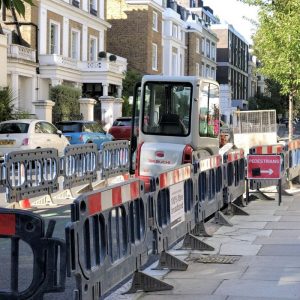

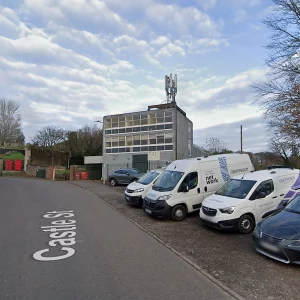
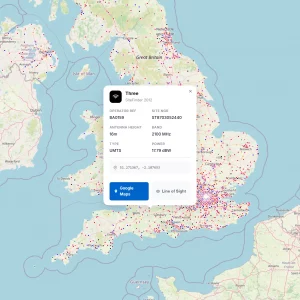


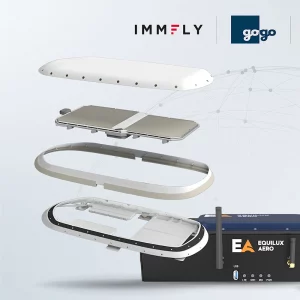

Cheap BIG ISPs for 100Mbps+
150,000+ Customers | View More ISPs
Cheapest ISPs for 100Mbps+
Modest Availability | View More ISPs
Latest UK ISP News
Helpful ISP Guides and Tips
Sponsored Links
The Top 15 Category Tags
- FTTP (6845)
- BT (3900)
- Politics (3093)
- Business (2791)
- Openreach (2680)
- Building Digital UK (2522)
- Mobile Broadband (2495)
- FTTC (2147)
- Statistics (2143)
- 4G (2111)
- Virgin Media (2038)
- Ofcom Regulation (1788)
- 5G (1754)
- Fibre Optic (1609)
- Wireless Internet (1602)
Sponsored
Copyright © 1999 to Present - ISPreview.co.uk - All Rights Reserved - Terms , Privacy and Cookie Policy , Links , Website Rules










